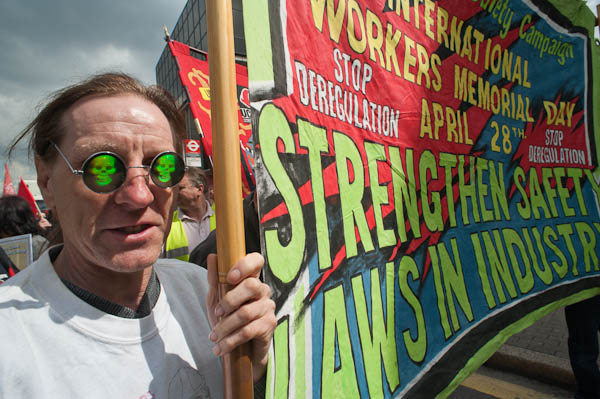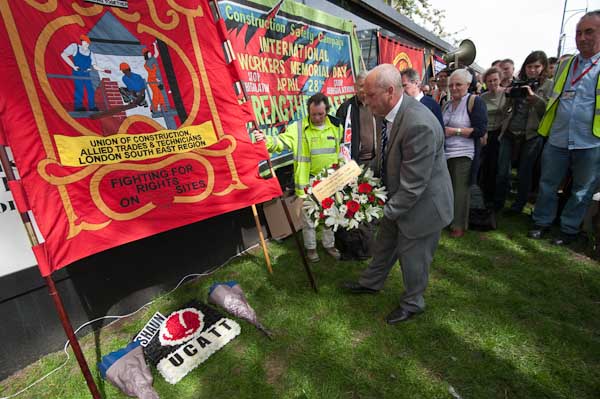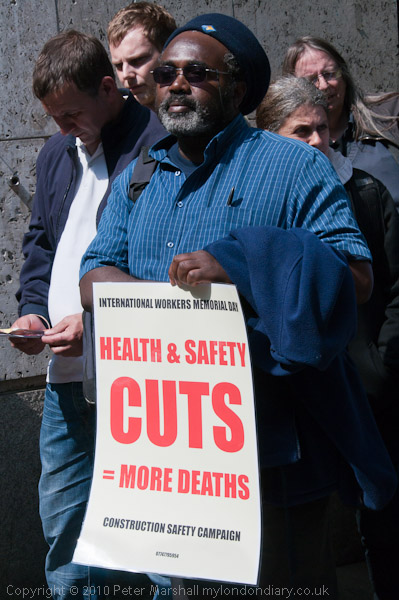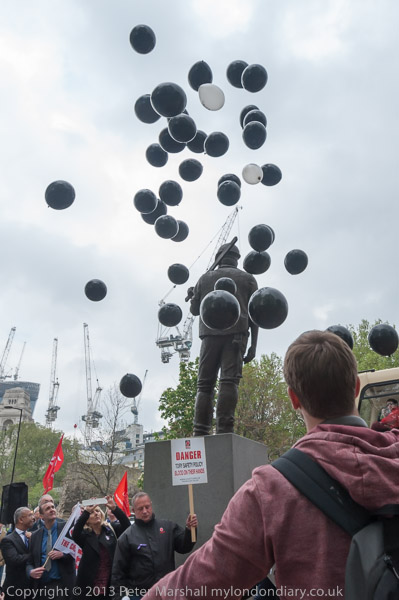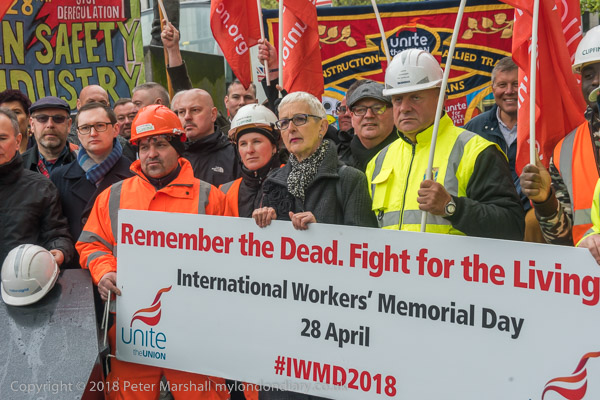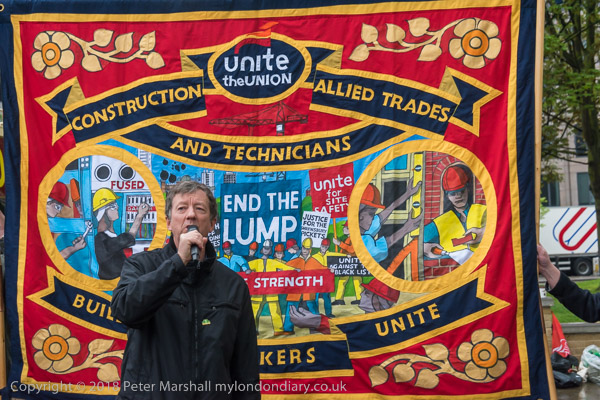International Workers’ Memorial Day (IWMD). On the TUC web site it states:
Every year more people are killed at work than in wars. Most don’t die of mystery ailments, or in tragic “accidents”. They die because an employer decided their safety just wasn’t that important a priority. International Workers’ Memorial Day (IWMD) 28 April commemorates those workers.
International Workers Memorial Day
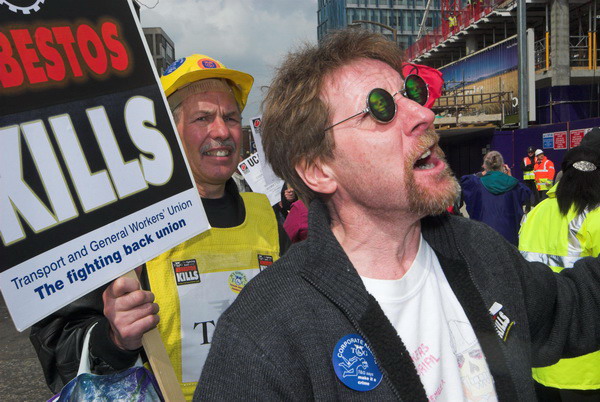
The TUC explains:
We remember those who have lost their lives at work, or from work-related injury and diseases. We renew our efforts to organise collectively to prevent more deaths, injuries and disease as a result of work.
International Workers Memorial Day is commemorated throughout the world and is officially recognised by the UK Government.
We remember those we have lost. We organise in their memory.
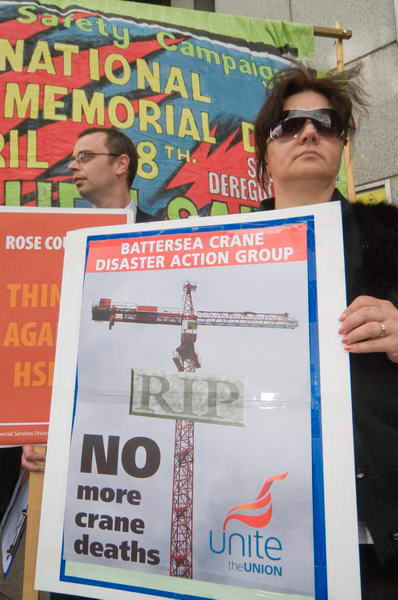
Official statistics for workplace fatal injuries – 142 deaths in Great Britain in 2021 minimise the impact of work on worker’s health. These are the actual deaths on the job, at the workplace, mainly among workers in construction and agriculture. But many more die from longer-term consequences of their employment, such as handling hazardous materials without proper protection, perhaps leading to death 20 years after exposure.
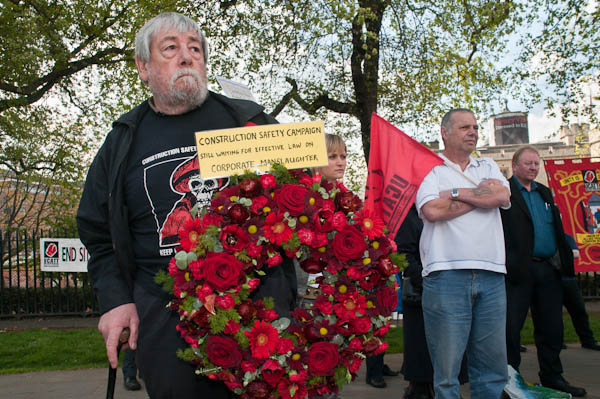
Both Labour and Conservative governments have attacked and removed necessary safety measures as ‘red tape’, cutting down safety inspections. It was an approach that made tragedies such as the terrible Grenfell fire inevitable and one that also endangers workers. Employers have lobbied for these changes to increase their profits. Few ‘accidents’ are accidental; most are predictable effects of failures to have or to observe proper safety measures.
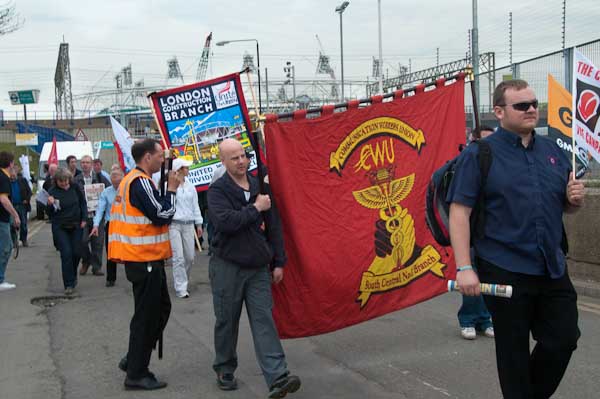
Each year the International Trades Union Congress sets a theme for the day, and this year’s is ‘Make safe and healthy work a fundamental right’. In particular Covid-19 has exposed an occupational health crisis in workplaces worldwide, with many workers in this country and elsewhere being made to work in situations which have led to them becoming ill and some dying, particularly in healthcare where in this country and others around the world proper protective equipment was not available, but also in construction and manufacturing where social distancing at work was impossible.
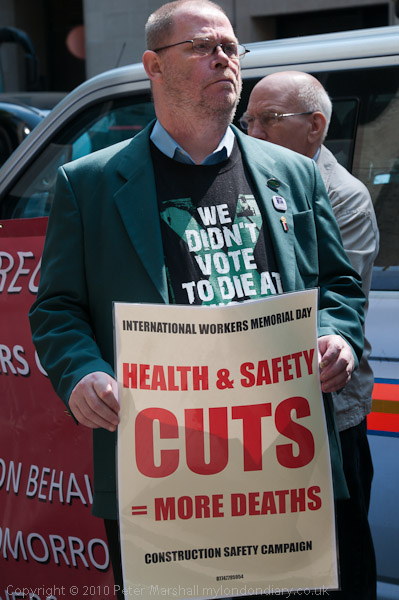
Many across the world have been unable to access the vaccines which have helped make Covid less life-threatening now here, though even with this in the UK government figures now show over 190,000 deaths with Covid-19 on the death certificate.
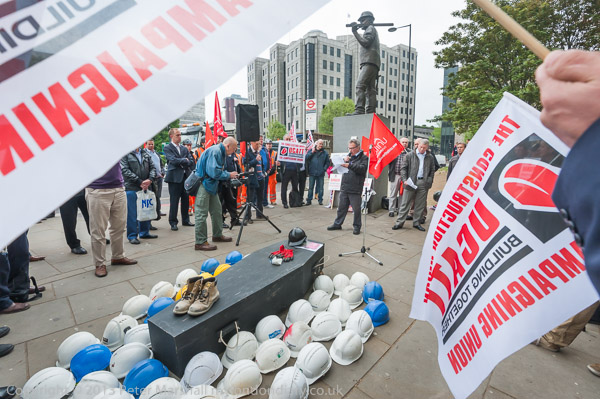
Around London this year there are events in Barking and Waltham Forest as well as at the Covid Memorial Wall on the embankment opposite the Houses of Parliament where there will be an event starting at 1.30pm with a one-minute silence at 2pm.
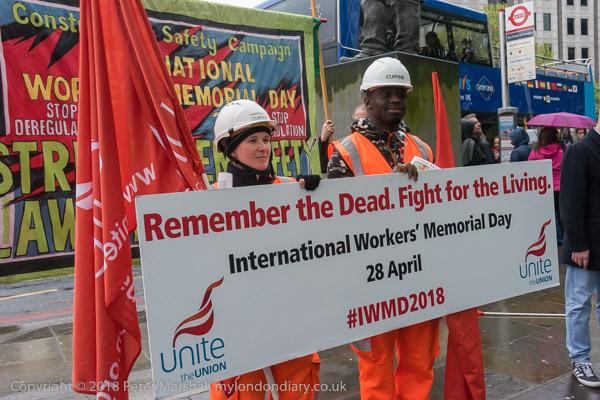
The pictures are from a few of the #IWMD events I’ve attended over the past years. Although my current Covid infection has been relatively mild, I am still feeling too weak to be there today.
‘Remember the dead – fight like hell for the living!’
